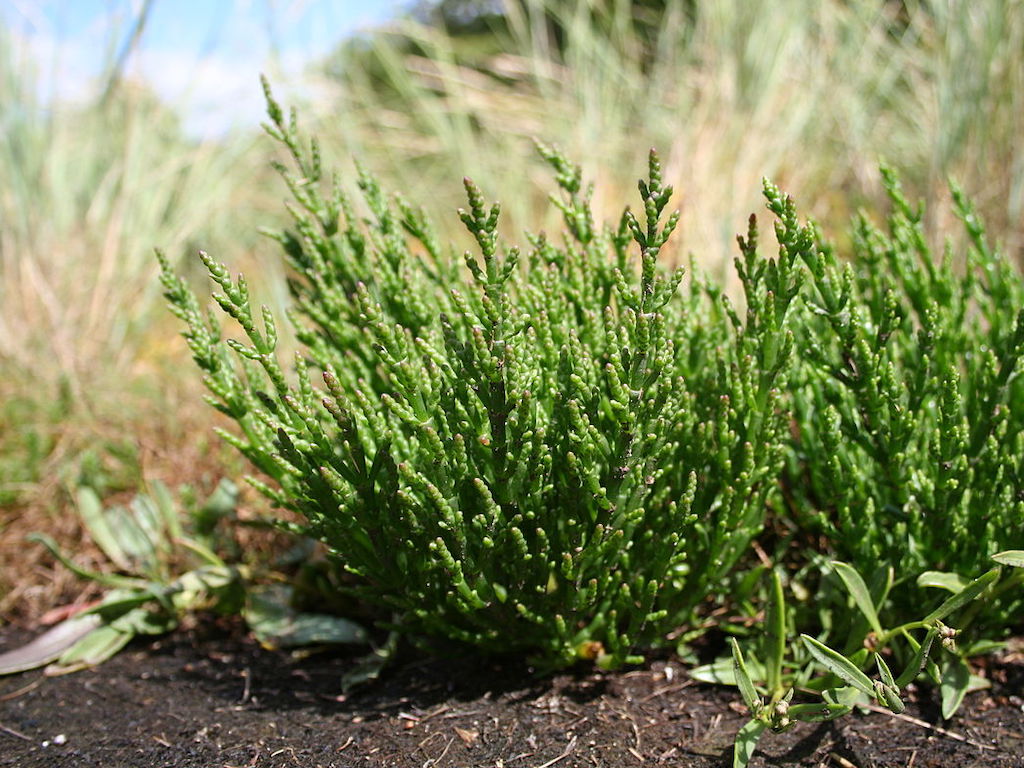3 Mins Read
Seoul-based food tech startup PhytoCo has officially launched PhytoSalt, a salt that is 20% lower in sodium and is free of microplastics. Derived from the salt-accumulating plant Salicornia, the new product is the world’s first plant-based salt. The startup hopes to be able to roll out more plant-based, healthy and sustainable food products using Salicornia.
Founded in 2014, PhytoCo is a Korean food tech company that uses Salicornia to create sustainable plant-based foods. It has recently launched PhytoSalt, the world’s first plant-based salt that is not only healthier as it contains 20% less sodium compared to sea salt, but is also 100% microplastics-free.
Salicornia, also known as “sea asparagus” or “sea bean”, is a plant that is naturally salt-accumulating. PhytoCo extracts sodium chloride, calcium chloride, magnesium chloride and glutamic acid from the plant, which gives its proprietary product a naturally salty taste that can be used to flavour any dish, such as snacks, pastas and soups, in the same way as regular salt.
The advantage of PhytoSalt, according to the company, is that it gives consumers the same taste, functionality and flavour of the regular version without the negative side effects such as “salt stress” from high sodium consumption and without microplastics, which regulators have been finding in sea salt products in larger quantities recently due to the severity of ocean plastic pollution.
In Hong Kong, the consumer watchdog revealed that over 60% of the salt products available on supermarket shelves tested positive for heavy metals, and for the first time, microplastics were found in many samples of sea salt.
Speaking to FoodNavigator, the CEO and president of PhytoCo Deuk-Hoi Kim said: “It is especially good for use with salty snacks such as chips, crackers, pretzels, and french fries, and we also recommend it for use as a sports drink – it is rich in essential minerals such as potassium, calcium, magnesium, and iron, so if you drunk with water after sweating, it can replenish the electrolytes that have escaped with sweat.”
The company says that its new product will be initially available for US$7 for 30 servings via online retail in Korea before branching out internationally, with their target markets being Japan, China, Europe and the United States.
They also hope to be able to partner with other businesses in the food service industry, citing that they have received expressed interest in stocking PhytoSalt as a key seasoning ingredient that would appeal to health-conscious diners.
Other products in the pipeline for PhytoCo include PhytoMeal, which it describes as a “superfood ingredient” that can be used as a plant-based food supplement for humans and pets, and is also created using Salicornia.
The company believes that the timing of their product launch is particularly relevant because of the current coronavirus pandemic, which has led to “deep awareness of health, safety and the global environment, so especially when it comes to food consumption, consumers will pursue healthier and safer foods,” explained Kim.
In the long-term, as the climate change continues to intensify, the company hopes that their plant-based products will help transform the global food system into one that is more sustainable and resilient to climate-induced weather events that will impact food security. Some staple food crops such as rice and potatoes are already under threat due to global heating.
“The world is now facing a serious shortage of crop production due to water shortages caused by climate change, but Salicornia is mass-cultivated by seawater agriculture and could potentially solve these food shortages,” Kim said.
Lead image courtesy of Wikimedia Commons.




